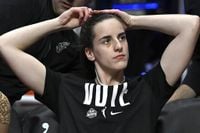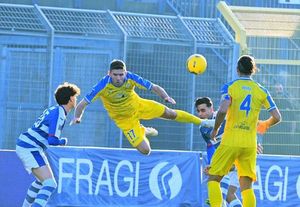In the world of women's basketball, few moments have ignited as much discussion as the infamous clash between Caitlin Clark and Chennedy Carter during the 2024 WNBA season. This incident, which took place on June 1, 2024, in a game between the Chicago Sky and Indiana Fever, continues to reverberate throughout the league, stirring debate among fans and analysts alike.
The scuffle occurred during the third quarter when Carter delivered a controversial hip-check to Clark, a move that many deemed unnecessary and unsportsmanlike. Initially a common foul, the WNBA reviewed the play and subsequently upgraded it to a Flagrant 1, underscoring the seriousness of the incident. Despite the tension on the court, the Fever managed to secure a narrow victory, winning the game 71-70.
In a recent interview, Carter reflected on the moment, stating, "It happens in basketball. It’s just like one of those things. It’s kind of what happened and it spiraled out of control. … It was like a little tap, like, ‘I’m here not to harm you or anything.’" She further emphasized that she holds no animosity towards Clark, declaring, "My personal view is I don’t have anything against [Clark]. She’s a great player and so am I. … I love it, though. They think I hate it! I love the hate!" This perspective sheds light on her mindset as she embraces the role of the antagonist in women's basketball.
Caitlin Clark, known for her resilience and competitive spirit, addressed the incident in her own way. In a guest appearance on Netflix's "My Next Guest Needs No Introduction with David Letterman," she acknowledged the challenges that come with playing at a high level. "Emotions get the best of you," she said, highlighting the intensity of the sport. Clark's ability to brush off the incident speaks to her maturity and focus on the game.
However, the fallout from the clash extended beyond the court. Following the incident, Carter faced significant backlash on social media, with fans questioning her intentions and labeling her actions as overly aggressive. Despite averaging 17.5 points per game with the Sky last season, she remains a free agent, leading some to speculate that her controversial past may have hindered her chances of signing with a new team.
One fan remarked, "Y'all seriously don't believe her, do you?" while another suggested that Carter's recent comments were merely a public relations strategy to repair her image. The skepticism surrounding her intentions is palpable, especially given her earlier refusal to answer questions about Clark, famously stating, "I ain't answering no Caitlin Clark questions." This line became infamous, further fueling fan frustration and speculation about her feelings towards Clark.
The incident has also sparked broader discussions about the culture within women’s basketball. The rivalry between Clark and Carter illustrates the fierce competitiveness that defines the league, but it also raises questions about the acceptable limits of physical play. As the WNBA continues to grow in popularity, the league must navigate the fine line between intense competition and sportsmanship.
In the wake of the incident, both players have attempted to move forward. Clark has focused on her game, preparing for what many anticipate will be a breakout sophomore season. Meanwhile, Carter, despite her talent, is still searching for a team willing to take a chance on her. The uncertainty surrounding her future in the league looms large, especially given her history of off-court issues, including a suspension by the Atlanta Dream in 2021 for "conduct detrimental to the team."
The ongoing narrative surrounding the rivalry between Clark and Carter has captivated fans, with many speculating about the potential for a dramatic reunion on the court. Social media buzzes with theories about what could happen if the Indiana Fever were to sign Carter, alongside other controversial players like Sedona Prince. Such a roster could undoubtedly create a spectacle, drawing viewers eager to witness the drama unfold.
As the WNBA prepares for the upcoming season, the league faces the challenge of managing player dynamics while fostering a competitive yet respectful environment. Both Clark and Carter have expressed a desire to move past their confrontation, but the lingering effects of the incident remain palpable in the eyes of fans and analysts alike.
In conclusion, the clash between Caitlin Clark and Chennedy Carter serves as a compelling case study in the complexities of modern sports rivalries. With both players poised to make their mark in the league, the question remains: will the WNBA embrace the drama, or will it seek to promote a more sportsmanlike atmosphere as it continues to evolve?





